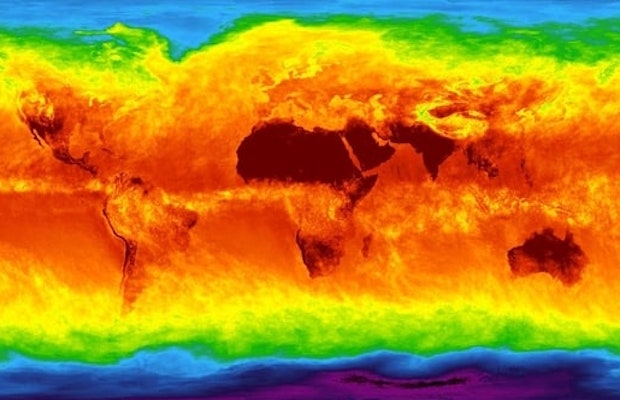

Although this does not come across as something unexpected with a broad consensus in the scientific community for a long time, uncertainty remained around how natural ocean-cycles might be influencing global heating over the course of multiple decades. The answer we can now give, thanks to this research, is: very little to none.
In a new study, published in the Journal of Climate, researchers at the Environmental Change Institute, University of Oxford, looked at observed ocean and land temperature data since 1850. Apart from human-induced factors such as greenhouse gas concentrations, other occurrences such as volcanic eruptions, solar activity and air pollution peaks were included in the analysis. The findings demonstrated that slow-acting ocean cycles do not explain the long-term changes in global temperature, which includes several decades of accelerated or slowed warming.
“We can now say with confidence that human factors like greenhouse gas emissions and particulate pollution, along with year-to-year changes brought on by natural phenomenon like volcanic eruptions or the El Niño, are sufficient to explain virtually all of the long-term changes in temperature,” said Dr. Karsten Haustein, lead author on the study. “The idea that oceans could have been driving the climate in a colder or warmer direction for multiple decades in the past, and therefore will do so in the future, is unlikely to be correct.”
[related_post]
The study showed that global warming that occurred during the ‘early warming’ period (1915 — 1945) was in fact caused by external factors as well. Formerly, it had been largely attributed to natural ocean temperature changes, which is why there has been uncertainty over how much of global warming is influenced by unpredictable natural factors.
“Our study showed that there are no hidden drivers of global mean temperature,” said co-author Dr. Friederike Otto. “The temperature change we observe is due to the drivers we know. This sounds boring, but sometimes boring results are really important. In this case, it means we will not see any surprises when these drivers, such as gas emissions, change. In good news, this means when greenhouse gas concentrations go down, temperatures will do so as predicted; the bad news is there is nothing that saves us from temperatures going up as forecasted if we fail to drastically cut greenhouse gas emissions.”
Reliance Industries Ltd (RIL) Chairman Mukesh Ambani has announced a massive ₹75,000 crore investment in…
Green-energy heavy-duty truck maker Blue Energy Motors has reached a remarkable milestone by surpassing 50…
India is on track to exceed its Nationally Determined Contribution (NDC) target of reducing the…
Raj Process Equipments and Systems Pvt Ltd, a Pune-based technology innovator and engineering conglomerate, is…
Europe’s renewable energy sector faces a potential slowdown, burdened by grid saturation, permitting delays, and…
Hexa Climate has announced the launch of a pioneering afforestation project in Purulia, West Bengal.…